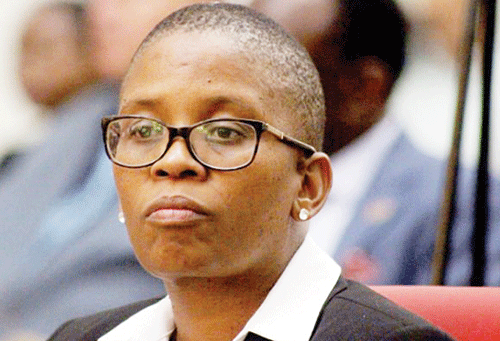Amidst the noise around the proposed fast-tracking of the divorce law, relationship experts opine that divorce should always be the last resort to preserve the sanctity of marriage. This comes after justice minister Yvonne Dausab tabled the Divorce Bill in the National Assembly on Tuesday.
At the heart of the proposed legislation is protecting the privacy of spouses during certain legal proceedings, which at times forces them to defame each other.
Relationship expert and counsellor Ngamane Karuaihe-Upi said while the proposed Divorce Bill addresses certain challenges in marriages and aids those in abusive relationships, it should also provide alternative avenues before resorting to divorce.
“To fast-track the divorce process is one thing, but what does this mean in the long- term? The breakdown of the family. People can just make some lame excuses that they want to divorce. Do we have provisions in it to preserve the sanctity of marriage? Do we have provisions for people to seek alternatives before divorce is ordered?” a worried Karuaihe-Upi asked in an interview with this publication.
He emphasised that there should be remedies to fix marriages.
“Why did they get married in the first place? Maybe they need a reminder; they need counselling, or therapy.
There must be measures to safeguard the spouses, children and extended family who may have come together as a result of that marriage,” he opined.
Singing from the same hymnbook was a revered clergyman, Bishop Lukas Katenda.
Although the man of cloth supports the proposed Bill, he likewise stated that with respect to the sacrament of marriage, divorce should be the last resort as it is traumatic for those affected.
“It is necessary for people to exhaust all other options. Only when they have gone through counselling or spiritual guidance and found a dead-end should divorce come into the picture,” he stated.
Katenda also warned people to enter into marriages only when they are ready.
Regarding civil legal contractual obligations, he said the Divorce Bill is necessary as it makes things easier and rescues people from unhappy marriages.
He also believes the Divorce Bill will not increase divorce cases since people are divorced in their hearts before they approach the law to finalise it.
“Fast-tracking it or not will not change how people feel,” said Katenda.
Legislation
In essence, the Bill aims to consolidate and reform an outdated law concerning divorces related to civil marriages in the country.
The current law is said to be cumbersome, as making allegations about a spouse’s conduct within matrimonial proceedings to legally dissolve a marriage has been shown to create or exacerbate conflict during already-difficult circumstances.
“It has also often been used to embarrass and humiliate spouses who would otherwise still want to remain in the marriage,” Dausab motivated.
While they wish for the proverbial ‘happily ever after’ to be a reality, she said divorce statistics speak to a different reality.
The introduction of this Bill follows a protracted process of wide consultations over 20 years.
While the Bill is widely perceived to make divorce easier to break families, Dausab said the intention is not to undermine the institution of marriage, but to provide a legal framework which offers the necessary relief and protection to those in desperate situations, such as victims of domestic abuse or irreparable marital breakdowns.
“This proposed legislation is not intended to solve all matrimonial challenges, but seeks to mitigate the impact that an already- difficult situation has on the life and status of those involved,” continued Dausab.
The minister said the focus is to ensure the fair and equitable treatment of all parties involved in divorce proceedings.
The piece of legislation likewise aims to reduce the trauma experienced by parties and the children of the marriage by removing the mandatory restitution of conjugal rights, which often aggravates family conflict and increases occurrences of domestic violence.
The current divorce law places a financial burden on the poor and vulnerable, who cannot afford the high legal costs.
Currently, divorce proceedings cost anything between N$10 000 – N$30 000, making it prohibitive for many.
Dausab said the proposed law promotes “DIY” divorces, which will speed up the finalisation of divorces.
Karuaihe-Upi raised concern about the inclusion of customary marriages, saying those in such marriages should also be protected.
His concerns are not unique, as during consultations, various stakeholders expressed similar concerns, particularly on customary marriages in respect of divorce and other family law-related matters such as custody and control of children and proprietary issues.
Dausab emphasised that the legislative framework does not apply to customary marriages and termination of customary marriages, as that will be dealt with in the appropriate marriage and other legislation.
Dausab’s motivation stated that the Bill eliminates judicial separation, addressing the impracticality of such orders in abusive relationships.
Instead, the Bill prioritises the best interests of children through provisions for custody, guardianship and access, and includes detailed guidelines for spousal and child maintenance, ensuring comprehensive support in the aftermath of divorce.
Caption:


